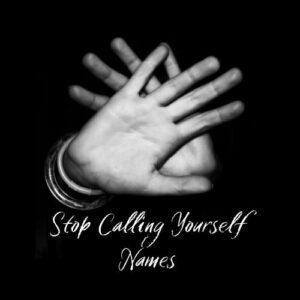We all do it; saying no to the reality that life presents. It’s part of how we try to protect ourselves, express our values, and fine-tune our moral compass. Yet despite our best intentions, the inclination to push against what we don’t want to accept comes with a price.
Think about times when you’ve made a positive change in your life. Did it come from resisting what was happening, hating yourself, or a situation? Or did it result from a place of accepting yourself or your current circumstance?
“The only time we suffer is when we have a thought that argues with reality” – Byron Katie
Why me?
Why now?
It’s not fair.
How could this have happened?
This shouldn’t be happening.
This is what should have happened.
What a mess
This is awful.
I never asked for this.
What went wrong?
Can’t I ever catch a break?
I don’t deserve this.
When will it be my turn?
Why do I have to put up with this?
These are a sampling of the common ways we refuse to allow what has already been allowed. When confronted with a reality we don’t want, there is a strong impulse to dispute, deny or disagree with that which already exists or has already happened. In doing so, we expend a lot of futile energy trying to negotiate with a past we cannot change.
Of course, we are entitled to protest. We can and often do assert to ourselves, others, and the world that whatever happened shouldn’t have happened. It can feel important, justified, and necessary to do so. We can feel very convicted about the usefulness of our protest even when it works against us.
“When you use the word should, you are arguing with reality.” – Tara Brach
So what is an alternative to arguing with reality?… Acceptance.
This answer can at first leave us feeling deflated, demoralized and dissatisfied, but I believe this reflects a fundamental misunderstanding of what acceptance is and is not.
What acceptance is NOT:
- It is not surrender or giving up
- It is not passivity
- It is not weakness
- It is not approval, agreement, or alignment
- It is not necessarily peaceful, easy, or comfortable
Sometimes the fight against acceptance can actually feel mobilizing and energizing while keeping other painful emotions like grief and loss at bay. Though this can seem protective, its effect is like the proverbial struggle in quicksand keeping us stuck and unable to see beyond what we don’t want. As the saying goes, “What we resist persists.”
“When we argue with reality we lose but only 100% of the time.” – Byron Katie
Acceptance doesn’t mean we approve or agree with what we’re accepting. It also doesn’t mean we’re condoning something or feel good about it; it just means we no longer fighting against that which we can’t change or control.
Acceptance also isn’t about letting go of wanting things to be different but the focus shifts from trying to change the past to using present reality as a springboard to possibility, options, and vision.
What acceptance IS:
- Seeing reality for what it is
- Acknowledging that this particular circumstance is indeed happening.
- Accepting our limitations to control situations, people, etc.
- A portal for creative problem solving
- A willingness to build the skill of resilience and cognitive flexibility
There is a price for acceptance and that’s the willingness to acknowledge what we can’t control. Instead, we choose to take responsibility for that which we have the ability to respond and accept the challenge life has offered – to pivot into the unknown or unwanted.
Acceptance sounds nice but it’s hard work that requires courage and humility. In contrast, resisting things we don’t like or want feeds into illusions of strength, control, and righteousness. Short term these can buoy us emotionally but the longer we try to control that which we can’t, the more out of control we feel.
The paradox is that we have to accept where we are before we can ever change. We can’t resist our way to change. Despite what we see in the media, change doesn’t require fighting or hate. When confronted with a reality we don’t want, we do have control; not over the reality itself but with how we respond to it. This ability to choose how we respond to the circumstances in our lives is where we find freedom and from where positive change emerges.



